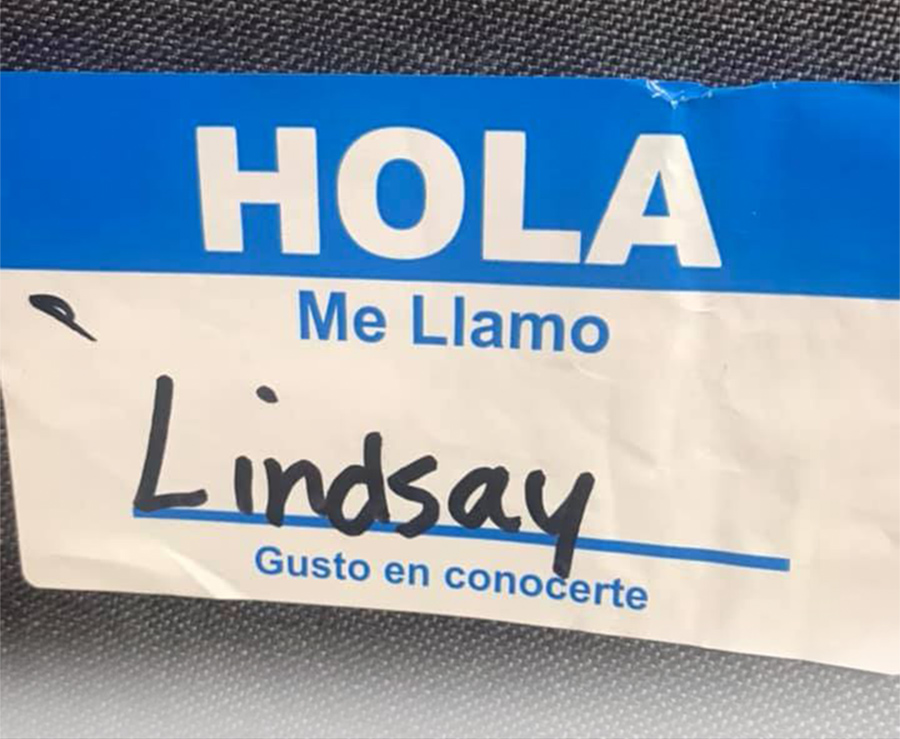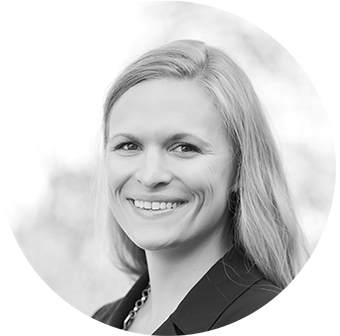t just four years old, he witnessed a gang murder in the street while he was playing in the front yard with his mom. The gang knew what he had seen, and for that they sentenced the little boy and his mother to death. The death threat was delivered the next day: A loaded gun pressed against the mother’s temple, warning they had three days to leave town. They left the next day, leaving behind her husband and her other children, her home and her belongings.
Now the boy sits in front of me, in prison. He wipes his nose and occasionally coughs. He buries his head in his mom’s chest and breaks down in tears as she recounts their story.
It’s hard to hear the little boy’s mother over the coughing and crying of 60 other children and their mothers in the crowded waiting room, which also serves as my office at the Dilley Family Detention Center. This mother and son are among thousands of Central Americans seeking asylum in the United States, and just one of 30 families I will meet during my week in September 2018 as a volunteer attorney at this family prison in Dilley, Texas. I am overwhelmed. How did I get here?
To answer that question, I need to step back and provide context. The summer after my first year of law school, I came across an internship with the World Relief legal clinic. World Relief is a refugee resettlement nonprofit with an immigration legal clinic. I jumped right in and was thrilled to have a practical application for that Spanish major I had recently acquired. What I wasn’t prepared for was the people. Or the stories. And I definitely wasn’t prepared for the children.
I met child trafficking victims, refugees, domestic violence survivors, women who had been subjected to female circumcision. I also met a high school senior at the top of his class who wanted to go to college but couldn’t because his parents carried him across the border when he was less than a year old. Without a social security number, he couldn’t apply. As we explained to many of our clients, there was nothing we could do to help him gain legal status – or higher education, until the laws changed.
After two years at the legal clinic, I felt discouraged. Good people, horrible stories and no recourse. That seemed to be a common outcome. I knew that I had a passion for this population of people, but I couldn’t live with the heartache of not being able to provide these families with the outcomes they so desperately needed.

I knew that soundbites and reality were worlds apart, but I didn’t speak up with what I knew. I shared my experience with close friends, but I told myself that I cared too much about this topic to try and argue with people who insisted on stereotyping an entire population of people they had never met and had no desire to learn about.
I used this logic to justify my inaction on an issue I cared about so deeply. The idea of only sharing my passion with people who would revere it and nurture it in the same way that I did resonated with me. But it also burdened my conscience. Could there be a duty to share my passion?
In April 2018, as the immigration issue came to a head and children were being separated from parents at the border, I still wasn’t ready to speak up, but I knew I had to do something. I signed up to become a volunteer attorney with the Dilley Pro Bono Project. In August, I was notified that I would be going to Dilley in September with a group of about 30 attorneys and interpreters. Excitement immediately turned to dread.
I had no idea what to expect, but I wasn’t optimistic. My previous experience told me that only a handful of these detainees would actually have a case. I braced myself for a week of heartache without resolution.
By the time I got to Dilley, the U.S. was no longer separating children from parents. However, the first woman I spoke with had been separated from her son at the border. He turned 18 during their journey from El Salvador and thus was considered an adult male and sent to the men’s facility. No one had been able to locate him. As she described this to me, her young daughter began crying, saying, “I miss my brother!” Then the mother told me her horrific story. The little girl broke down: “I’m scared, mommy! They’re going to find us!” She cried and cried until she fell asleep in her mother’s arms.
I was also left with an overwhelming conviction that I indeed had a duty to speak up. And so, I began to write, sharing my experience on social media. My post after my first day in Texas began: “My heart broke into a million pieces this morning.” Friends from all political walks of life encouraged me and thanked me for volunteering. People I assumed would be against this effort thanked me for helping these women and children. When I returned home, I spoke at my church about this experience. Several people approached me afterward to say they had no idea about the situations compelling Central Americans to flee to the U.S. border. Even last week, I was approached by a woman who said, “Thank you for that talk. I’m still thinking about what you said.”
Speaking up leads to action. Action creates experiences. Sharing those experiences sheds light. Shedding light starts subsequent conversations. And those conversations spark others to act. Through this cycle, we encounter enhanced understanding and meaningful change.
Resisting the inclination to hoard our passion also forces us to study it and learn more about it as we endeavor to share it with others and, perhaps in the process, persuade our friends, peers and even foes to jump on board. But in order to do so, we have to allow ourselves to become vulnerable to the inevitability that not everyone will agree that chemistry is superior to trigonometry or that longer tables are better than taller walls. Through that vulnerability we just might find common ground or even progress. At a minimum, sharing our passion creates better awareness and appreciation of each other and the world around us.
The week after I left Dilley, I checked on the status of my clients. All of them had received positive initial interviews on their asylum cases and had either been released or scheduled for release from the Texas prison. I know that these women will keep fighting for their families, and I will continue to speak up and show up wherever I can.

Lindsay Walker Hobson is a third-generation Alaskan. She earned her BA at Southern Oregon University in 2004 with a double major in Communication and Spanish. She went on to law school at Gonzaga University, where she focused on advocating for victims of domestic violence, gender violence and trafficking to gain legal status in the U.S. She returned to Alaska in 2010, working as an oil and gas attorney at Walker Richards before joining ENSTAR Natural Gas as a communications manager in 2015. Lindsay lives in Anchorage with her husband, Greg, and their two children.
Lindsay Walker Hobson is a third-generation Alaskan. She earned her BA at Southern Oregon University in 2004 with a double major in Communication and Spanish. She went on to law school at Gonzaga University, where she focused on advocating for victims of domestic violence, gender violence and trafficking to gain legal status in the U.S. She returned to Alaska in 2010, working as an oil and gas attorney at Walker Richards before joining ENSTAR Natural Gas as a communications manager in 2015. Lindsay lives in Anchorage with her husband, Greg, and their two children.